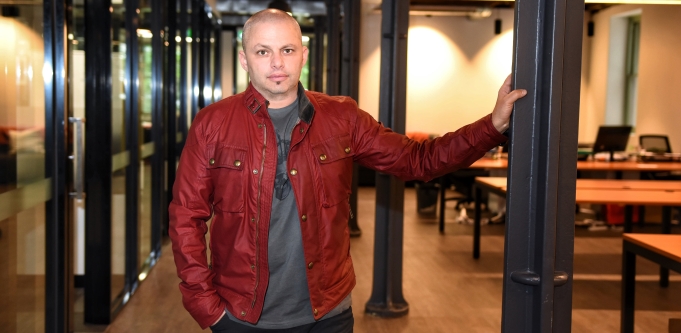
Melbourne-based coworking space York Butter Factory is hoping to propel Australia as a world-leader in ‘Web 3.0’ technology with the launch of a dedicated advisory and coworking hub.
Called YBF Mesh, the hub’s launch is riding off the meteoric rise of blockchain and distributed ledger technologies, which form part of a holistic and decentralised approach towards the next version of the internet, coined Web 3.0.
Blockchain tech forms just one pillar of this concept, and the hub will be bringing in startups and companies working in areas such as cyber security, decentralised publishing, and developers of bold new industry protocol standards, such as the Open Index Protocol.
This shift to more protocol and infrastructure-focused technology is what YBF believes will form the next version of the internet, leaving behind 2017’s focus on web applications and interoperability.
One example of this new approach to web infrastructure is one of YBF Mesh’s founding companies The Decentralised Library of Alexandria, which offers an open-source, decentralised way fort artists and content creators to publish, distribute and sell digital content online.
Speaking to StartupSmart, YBF chief executive Farley Blackman hopes Australian startups will come together under YBF’s roof to start building a “global community” of Web 3.0 developers. YBF will offer an array of services to startups in the hub, and will, in some cases, even form new startups from scratch.
“YBF Mesh will focus on offering the key components that an entrepreneur and Web 3.0 startups need to scale their operations – assisting with connections to a network of distributed technology investors, influencers, strategic advisors, service providers and Web 3.0 business architects, and in some cases we will co-create companies from the ground up,” he says.
“We will grow the community in a curated manner – building a Web 3.0 ecosystem of service providers, investors, developers and startups. It’s really exciting!”
Numerous projects under YBF’s roof
Projects working under the YBF Mesh roof from day one include Open Index Protocol (OIP) developers, the Decred Project, Loopring, WePower, FLO, the Decentralized Library of Alexandria, Block Collider, and Australian cybersecurity firm Ctrl Group.
This is a mix of both local companies and global teams, and YBF stresses the focus of Mesh will be global from the beginning, with future plans to open more hubs overseas in the future.
Global representative for the Decred project and founder of the Distributed Technologies Institute Joshua Buirski told StartupSmart that while cryptocurrencies are “still very much a core component” of the Web 3.0 concept, other projects, such as the OIP, paint a bigger picture.
“They demonstrate perfectly that distributed ledger technologies such as blockchain are merely one piece of the Web 3.0 puzzle – in the context of OIP they make up the open metadata ledger (or index), as well as the various payments ledgers,” he says.
“Web 3.0 represents the decentralization of all core web processes ranging from the ledger/database, storage, computational, infrastructural, and protocol layers, whilst simultaneously incorporating a unique socioeconomic component.”
Recently, members of the Australian fintech and blockchain community criticised the focus cryptocurrencies such as Bitcoin have drawn away from significant technological developments such as blockchain tech, with Stone and Chalk general manager Alan Tsen saying they were “a very small part of blockchain’s potential”.
Blackman specifies that founders don’t necessarily need many technical skills to work in the Web 3.0 space or in YBF Mesh itself, though he does note that “at minimum”, founders need imagination, strong business acumen and strong communication skills.
“We’ve also learned that founders need help navigating the general business landscape, this is especially true of legal and accounting in this complex space. It is one of our roles to help founders put all the necessary pieces together in order to give them the best chance of success,” he says.
Australia with a “rare opportunity” to be global leader
While Australia holds its own in specialised areas such as fintech, massive global hubs such as London and Tel Aviv are driving the development in those spaces, and will likely continue to.
However, the YBF Mesh team are hopeful on Australia’s role to play in developing and fostering growth in the Web 3.0 ecosystem, with Buirski saying it is “one of those very rare opportunities” to position ourselves as market leaders.
“Whilst much of the innovation was concentrated geographically around the San Francisco Bay Area during the previous tech boom, we’d be wise to foster a different approach here. In alignment with the underlying ethos driving the shift towards decentralized technologies, diversity plays a crucial role here,” he says.
“This shift requires diversity across geographical location, culture, gender, skillset, and preferences to drive a greater level of experimentation, and to avoid the dangers that come with centralizing, and therefore relying on one dominant pool of talent.”
“What we’re likely to see here is that the ‘Silicon Valley’ model will manifest itself in a global network of inter-linked hubs, with YBF Mesh being the first.”


COMMENTS
SmartCompany is committed to hosting lively discussions. Help us keep the conversation useful, interesting and welcoming. We aim to publish comments quickly in the interest of promoting robust conversation, but we’re a small team and we deploy filters to protect against legal risk. Occasionally your comment may be held up while it is being reviewed, but we’re working as fast as we can to keep the conversation rolling.
The SmartCompany comment section is members-only content. Please subscribe to leave a comment.
The SmartCompany comment section is members-only content. Please login to leave a comment.